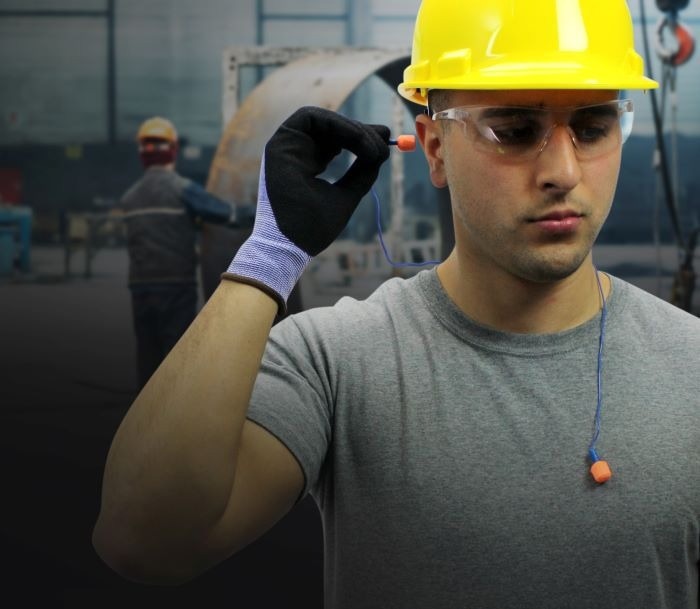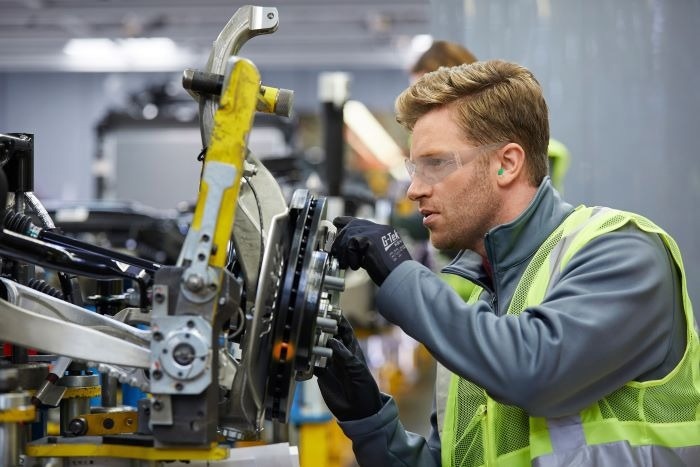As the world shifts toward sustainability, industries seek to adopt eco-friendly practices at every level of operation.1 One important area of focus is personal protective equipment (PPE).
Hearing protection is essential for workplace safety in noise-sensitive industries, such as manufacturing, construction, and mining.2 However, conventional disposable earplugs, typically made from polyurethane foam, possess substantial environmental drawbacks.
Protective Industrial Products (PIP®) has addressed this challenge with BioSoft™ sustainable foam ear plugs, the world’s first bio-based ear plug.3 This proprietary technology provides the same fit and protection as traditional PU or PVC materials with 32 NRR noise reduction levels while lowering its carbon footprint. BioSoft™ earplugs enable companies to minimize their environmental impact without compromising effectiveness, comfort, or affordability.
Answering the Call for Sustainable PPE
Across industries, companies are becoming more aware of their environmental impact and responsibilities, fueling the demand for eco-friendly PPE. This trend is evident in the US manufacturing sector, which has championed efforts to ensure worker safety in high-noise environments while adopting novel eco-friendly practices.
Until recently, companies looking to transition to sustainable PPE faced a challenge: the higher cost of eco-friendly alternatives. Many businesses are hesitant to switch, perceiving these products as more expensive or encountering higher prices.
BioSoft™ Sustainable Ear Plugs provide a simple and affordable entry point into greener safety programs. Made from 82% bio-based materials, these biodegradable ear plugs have a lifespan identical to their polyurethane counterparts. They can be priced at or below the cost of traditional 32 NRR-rated polyurethane foam ear plugs, allowing companies to embrace a greener approach without exceeding their budgets.

Image Credit: Protective Industrial Products, Inc.
These eco-friendly earplugs are available in various designs, including different colors, corded or uncorded styles, and a metal-detectable version suitable for usage in the food industry.3
The Environmental Impact of BioSoft™ Ear Plugs
Produced in North America, BioSoft™ Ear Plugs excel in performance and comfort and their comparatively positive environmental impact. To put it into perspective, workers may change their earplugs as many as four times daily, contributing to an estimated 50 million earplugs discarded in landfills worldwide daily.

Image Credit: Protective Industrial Products, Inc.
Conventional polyurethane ear plugs decompose by less than 1% over 180 days, gradually releasing harmful emissions into the environment. Conversely, BioSoft™ ear plugs were shown to decompose by 76% within the same period in an aerobic landfill, emitting as much as 5.6 times less CO2 compared to conventional polyurethane options.3
The ecological advantages of BioSoft™ ear plugs extend beyond the product itself. The packaging is fully recyclable, while the earplug bags and cords are made from bio-based materials. With ECOSeries™ technology, companies can take tangible steps toward achieving their sustainability goals by minimizing landfill waste and reducing their carbon footprint, ensuring comfort remains uncompromised and workers remain safe.3
A No-Brainer for Sustainability
Adopting these eco-friendly earplugs gives safety managers and PPE specialists a simple yet impactful way to make their workplace safety programs more eco-friendly. By maintaining protection, durability, and comfort, these earplugs achieve the ideal balance of performance, affordability, and environmental responsibility.
In a world where every step toward carbon neutrality matters, PIP now provides a practical and effective solution to support a safer, greener future for workers and the planet.
References and Further Reading
- Tonelli, F., Evans, S. and Taticchi, P. (2013). Industrial sustainability: challenges, perspectives, actions, International Journal of Business Innovation and Research, 7(2), p. 143. https://doi.org/10.1504/ijbir.2013.052576.
- Sekhon, N.K., Masterson, E.A. and Themann, C.L. (2020). Prevalence of hearing loss among noise-exposed workers within the services sector, 2006–2015, International Journal of Audiology, 59(12), pp. 948–961. https://doi.org/10.1080/14992027.2020.1780485.
- Protective Industrial Products (2024). Eco-Friendly Reusable Bio-Based Ear Plugs. [online] Protective Industrial Products. Available at: https://us.pipglobal.com/en/biosofttechnology/ (Accessed 24 Dec. 2024).

This information has been sourced, reviewed and adapted from materials provided by Protective Industrial Products, Inc.
For more information on this source, please visit Protective Industrial Products, Inc.